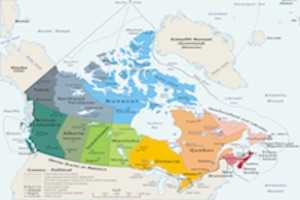Home > Permanent Residence > Provincial Nominee Programs (PNP) > Nova Scotia Nominee Program (NSNP) > NSNP - NS Experience: Express Entry stream
The guide below takes a deep look into one of the streams of Nova Scotia's Provincial Nominee Program (NSNP), the NS Experience: Express Entry stream. The guide will go through an overview of the stream, its eligibility requirements, how it works, the documentation needed, its cost and processing times.
Overview of the NS Experience: Express Entry stream
|
The NS Experience: Express Entry (NSE:EE) stream is one of Nova Scotia's PNP streams that requires the candidate to have work experience in Nova Scotia to be eligible.
When receiving a nomination under the NSE:EE stream, candidates can then apply for Permanent Residence to the federal government of Canada. |
This stream is aligned with Express Entry, and if nominated, a candidate will receive an additional 600 CRS points in their Express Entry profile, thus guaranteeing an Invitation to Apply. With Express Entry, candidates can take advantage of the 6-month average processing times of applications.
The NSE:EE stream does not require the candidate to hold a valid job offer to be eligible, and there is no need to provide proof of settlement funds (however, when applying for PR under Express Entry, you might need to provide proof of settlement funds). There are other requirements that must be fulfilled regarding the candidate.
The NSE:EE stream does not require the candidate to hold a valid job offer to be eligible, and there is no need to provide proof of settlement funds (however, when applying for PR under Express Entry, you might need to provide proof of settlement funds). There are other requirements that must be fulfilled regarding the candidate.
Eligibility Requirements
There are 5 main categories of eligibility requirements that we will summarize below. You can apply to the NS Experience: Express Entry
(NSE:EE) stream if you satisfy to all the requirements below (remember that for each requirement, you will have to provide supporting documents).
1. Work experience requirements:
To be eligible to this stream, you must demonstrate that you have at least 1 year of full-time work experience in Nova Scotia.
Your work experience in Nova Scotia must be:
Work experience must not be dependent on a federal post-graduation work permit issued as a result of studies outside Nova Scotia.
Work experience gained while you were a full-time student or through self-employment will not be considered.
You have to demonstrate that you performed at least 51% of the duties listed in the lead statement of the occupation description in the NOC 2021.
As of April 17, 2024, the NSNP has paused accepting applications the Accommodation and Food Services sector due to a significant volume of applications awaiting a decision.
2. Education level requirements:
You must submit a completed Canadian secondary or post-secondary educational credential, or if the educational credential is from a foreign (non-Canadian) institution or authority, you must also submit an Educational Credential Assessment (ECA) issued by an approved provider.
You are considered ineligible to the stream if you don't have a secondary (high school) diploma.
3. Language abilities requirements:
You must demonstrate you have a minimum Canadian Language Benchmark (CLB) test scores, either in French or in English:
These language requirements are in line with Express Entry's CEC program eligibility requirements
The TCF Canada is accepted by the NSNP for this stream (more about approved language tests here).
4. Age requirement:
You must be between 21 and 55 years old.
5. Settlement requirements:
You must show that you have a genuine intention to settle in Nova Scotia and that you will become economically established in the province. You must provide a detailed explanation of why you choose to settle permanently in Nova Scotia and what you feel Nova Scotia can offer to you and your family. Your explanation can include details such as your plans for accommodation/housing, transportation, employment/job, schools or child care, language training plans, and integration into community.
(NSE:EE) stream if you satisfy to all the requirements below (remember that for each requirement, you will have to provide supporting documents).
1. Work experience requirements:
To be eligible to this stream, you must demonstrate that you have at least 1 year of full-time work experience in Nova Scotia.
Your work experience in Nova Scotia must be:
- full-time (min. 30h/week) or an equal amount in part-time (min. 15h/week),
- paid work (volunteer work, unpaid internships, co-op terms, etc. do not count),
- gained with the proper authorization (work permit, etc.),
- within the last 3 years, and
- in NOC TEER Category 0, 1, 2 or 3.
Work experience must not be dependent on a federal post-graduation work permit issued as a result of studies outside Nova Scotia.
Work experience gained while you were a full-time student or through self-employment will not be considered.
You have to demonstrate that you performed at least 51% of the duties listed in the lead statement of the occupation description in the NOC 2021.
As of April 17, 2024, the NSNP has paused accepting applications the Accommodation and Food Services sector due to a significant volume of applications awaiting a decision.
2. Education level requirements:
You must submit a completed Canadian secondary or post-secondary educational credential, or if the educational credential is from a foreign (non-Canadian) institution or authority, you must also submit an Educational Credential Assessment (ECA) issued by an approved provider.
You are considered ineligible to the stream if you don't have a secondary (high school) diploma.
3. Language abilities requirements:
You must demonstrate you have a minimum Canadian Language Benchmark (CLB) test scores, either in French or in English:
- If your work experience is in an NOC TEER Category 0 or 1, you must have CLB7 for each language skill.
- If your work experience is in an NOC TEER Category 2 or 3, you must CLB5 for each language skill.
These language requirements are in line with Express Entry's CEC program eligibility requirements
The TCF Canada is accepted by the NSNP for this stream (more about approved language tests here).
4. Age requirement:
You must be between 21 and 55 years old.
5. Settlement requirements:
You must show that you have a genuine intention to settle in Nova Scotia and that you will become economically established in the province. You must provide a detailed explanation of why you choose to settle permanently in Nova Scotia and what you feel Nova Scotia can offer to you and your family. Your explanation can include details such as your plans for accommodation/housing, transportation, employment/job, schools or child care, language training plans, and integration into community.
Application Process Summary
For a better understanding of the process, below is a list of the steps involved in obtaining Permanent Residence through the NS Experience: Express Entry (NSE:EE) stream. Candidates must:
You can check out our 10-step guide for Express Entry for more detailed information and advice.
- Meet the eligibility requirements of the federal FSW, FST, or CEC programs.
- Generate their Express Entry profile, and specify their interest in the province by selecting "Nova Scotia" or “All Provinces and Territories”.
- Qualify for the NSE:EE stream eligibility requirements.
- Apply to the NSE:EE stream by submitting their application through the Nova Scotia’s online service (filling in forms and uploading required documents).
- Accept the Nova Scotia provincial nomination (after the NSNP processes their application) within 30 days of receiving it on their Express Entry profile.
- Obtain an additional 600 CRS points in the Express Entry profile, and receive an Invitation to Apply (ITA).
- Apply for permanent residence through your Express Entry profile.
You can check out our 10-step guide for Express Entry for more detailed information and advice.
Application Fees
There is no fee for this stream, as well as for all the other NSNP streams.
Processing Times
The NSNP streams are processed in at least 3 months. The exact processing times by stream are not published by the NSNP, but you should expect between 3 to 6 months for your application to be processed, but it could take longer in some cases.
Stream Opening History
The NS Experience: Express Entry stream is usually always open. You can check out our awesome Live PNP Monitor to see if the stream is currently open and its latest news, as well as for all the other PNP streams.
Do I have to stay in the Province?
This is a tricky question and there are multiple situations that can happen. You can learn more about this subject on our dedicated article: Can I move to another province?
Does the Stream have In-Demand Jobs?
Some streams target specific NOC codes, meaning that if you have experience in those in-demand jobs, you either (i) have more chances to be invited or (ii) that you can be eligible to the stream. In the case of the NS Experience: Express Entry stream, there is no in-demand list. Instead, work experience in Nova Scotia is needed to be eligible to the stream.
You can find out about the other provinces' in-demand jobs in our in-demand NOC codes article.
You can find out about the other provinces' in-demand jobs in our in-demand NOC codes article.







